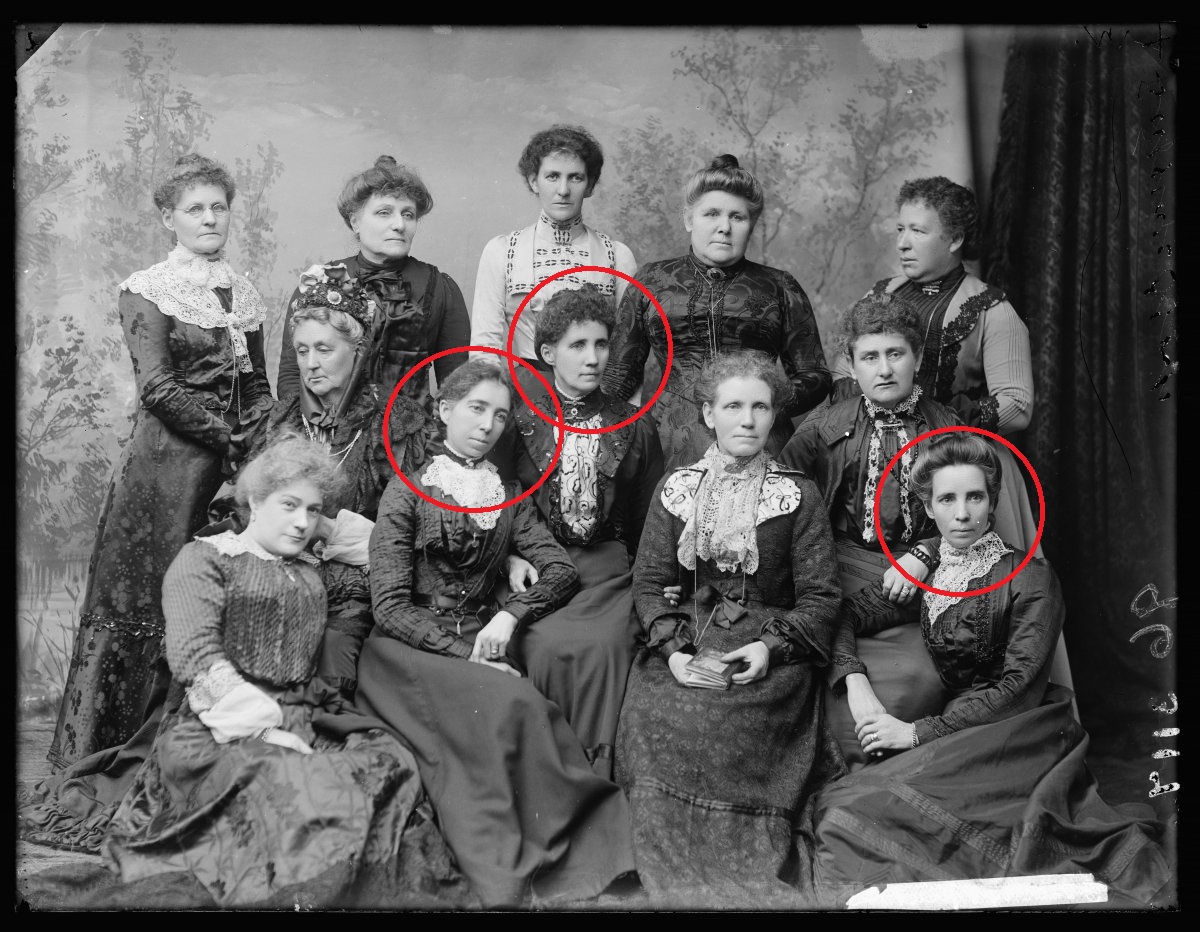Location
Hill End Heritage Centre, 1 Beyers Avenue, Hill End NSW 2850
Hill End is on the traditional lands of the Bularidee of the Wiradjuri people.
Accessibility
Wheelchair accessible
About the Golding sisters
The Golding sisters were prominent figures in the women's rights and suffrage campaigns in New South Wales. They advocated for women's voting rights and improved workplace conditions, including equal pay. Initially starting their careers as teachers, Annie, Belle and Kate increasingly engaged in politics and social justice throughout their lives.

Annie (centre row), Bella (second from left, front) and Kate (far right, front) Golding in the Womanhood Suffrage League of New South Wales, 1902
Teachers turned activists, Anne (Annie), Isabella (Belle) and Catherine (Kate) Golding began as educators and later championed women's rights in New South Wales. The sisters were born and raised in Tambaroora, New South Wales. Annie became the first to begin her teaching career (in 1874), with Belle and Kate soon joining her. It wasn’t long after that they entered their first women's rights group.
We are family
In the early 1890s, Annie, Belle and Kate joined the Newtown branch of the Womanhood Suffrage League of New South Wales (WSL). Annie eventually became secretary, but by 1901 they, along with Nellie Martel, left to form the Women’s Progressive Association.
This new group included women from lower, middle and working-class backgrounds. Annie later became president, advocating for social and domestic reforms benefiting women.
During this period, Australian women were gaining the right to vote, with New South Wales being the third state to do so, though this did not include Aboriginal women.
Stepping out on their own
The turn of the century was an exciting time for suffragists. Rose Scott's advocacy led to the Early Closing Act, benefitting women in retail. In 1900, Belle, passionate about women's working conditions, became the first female inspector under this Act and the first woman to chair a Wages Board.
After marrying, Kate (now Dwyer) was legally not allowed to work, so she used her time to volunteer for many causes to improve women's working conditions. She fought for married women's rights to assets and in 1904 led the Women's Organising Committee of the Political Labor League. She co-founded the Women Workers' Union, wrote on political and industrial issues, and was a renowned speaker. During World War I, she opened a factory for unemployed needlewomen. Kate became the first female fellow of the Senate at the University of Sydney and served as director and vice-president of the Benevolent Society of New South Wales.
The Golding sisters stood out for their individual and collective achievements. They led the charge for women's and workers' rights in New South Wales, each overcoming male-dominated systems to advocate for better conditions for working women.

Belle Golding’s retirement from public service announcement
Further reading
- City of Sydney Archives (n.d.) Public toilets in Sydney, Archives and History Resources, City of Sydney website, accessed 24 June 2025.
- Grimshaw P (n.d.) The Golding sisters, Encyclopedia of Women and Leadership in Twentieth-Century Australia website, accessed 24 June 2025.
- Grimshaw P (n.d.) Suffragists, Encyclopedia of Women and Leadership in Twentieth-Century Australia, accessed 24 June 2025.
